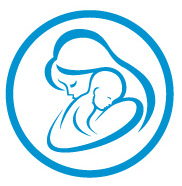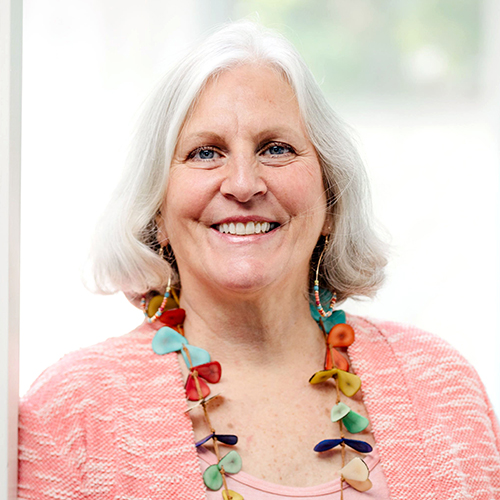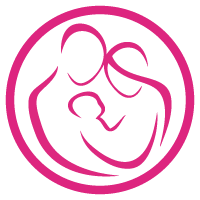 IBCLC Detailed Content Outline: Psychology, Sociology, and Anthropology Focused CERPs - Section V
IBCLC Detailed Content Outline: Psychology, Sociology, and Anthropology Focused CERPs - Section V
Access CERPs on Psychology, Sociology, and Anthropology for the IBCLC Detailed Content Outline recertification requirements. Enjoy convenient on-demand viewing of the latest Psychology, Sociology, and Anthropology focused IBCLC CERPs at your own pace.

Infant Mental Health: What Does It Look Like in Practice?

Gretchen Becker Crabb is an Occupational Therapist, Licensed Professional Counselor, and Endorsed Infant Mental Health Therapist. She is also a Certified Lactation Counselor, La Leche League Leader, and Brazleton Newborn Observation (NBO) trainer.
Gretchen’s passion is rooted in fostering lifelong relationships and connection through co-regulation in pregnancy and beyond. Her unique approach to lactation support and therapy is rooted in culturally attuned sensory, somatic, and trauma-informed mental health techniques.
Gretchen owns and operates a private practice in Madison, Wisconsin. For 21 years, she has provided developmental, trauma, feeding, and attachment support for tiny humans and their caregivers in birth to three, preschool, private practice, and peer group settings. Gretchen is an international speaker, reflective supervisor, and infant mental health consultant. In these roles, she offers compassionate, experiential, and reflective holding spaces for professionals. She is a proud United States Air Force spouse and mother of three boys.
Topic: Infant Mental Health: What Does It Look Like in Practice? - [View Abstract]
Topic: Scent-Sational Connections: The Role of Olfaction in Development - [View Abstract]
Topic: Sensory Processing and Breast/Bodyfeeding: Using Co-Regulation to Support the Feeding Relationship - [View Abstract]
Topic: Vestibular Processing: Using the Sixth Sense to Support Lactation and Parent/Infant Relationships - [View Abstract]
In this presentation, we will dive into the world of infant mental health and explore the unique ways that providers promote relationship development in families and communities for the first five years and beyond. We will discuss the basic philosophies and strategies used in the field of infant mental health, then engage together in an interactive and thought-provoking case study. Somatic techniques, reflective strategies and cultural considerations will be woven throughout to deepen learning and curiosity-- bringing the concepts to life and promoting the integration of infant mental health concepts into your daily practice.
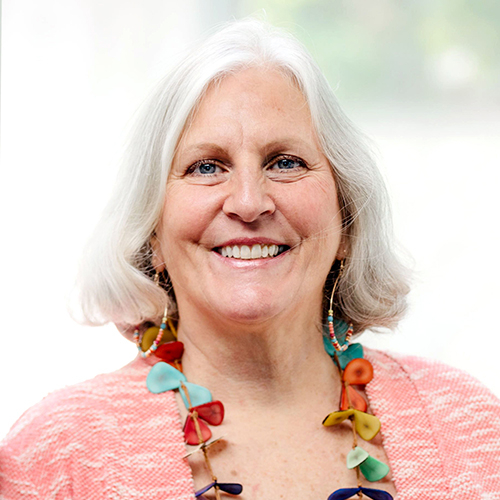

Dr. Hazelbaker has been a therapist in private practice for over 30 years. She specializes in cross-disciplinary treatment and to that end has taken training in several modalities to best assist her clients. She is a certified Craniosacral Therapist, a Lymph Drainage Therapy practitioner, a Tummy Time™ Trainer, a Haller Method practitioner, A Pre and Perinatal Psychology Educator, a Lactation Therapist Diplomate, an International Board Certified Lactation Consultant and a fellow of the International Lactation Consultant Association.
She earned her Master’s Degree from Pacific Oaks College (Human Development specializing in Human Lactation) and her doctorate from The Union Institute and University (Psychology, specializing in Energetic and Transformational healing.)
People recognize her as an expert on infant sucking issues caused by various structural problems like torticollis, plagiocephaly, brachycephaly and tissue shock-trauma. She invented the Hazelbaker™ FingerFeeder and the Infant Breastfeeding CranioSacral Protocol™ to assist in the resolution of this type of infant sucking dysfunction.
Topic: Cranial Nerves: A Critical Component of the Process of Breastfeeding - [View Abstract]
Topic: Creating Flow: Using Lymphatic Drainage Therapy for Breastfeeding Issues - [View Abstract]
Topic: Finger Feeding: What Do We Know? What Should We Know? - [View Abstract]
Topic: Gamechangers: New studies that will change the way we think about tongue-tie - [View Abstract]
Topic: Infant Trauma: Impact on Breastfeeding - [View Abstract]
Topic: The Faux Tie: When is a "Tongue-tie" NOT a Tongue-tie? - [View Abstract]
Topic: The Impact of Bodywork on Infant Breastfeeding - [View Abstract]
Topic: What Does Torticollis Have to do with Breastfeeding? - [View Abstract]

Inner Child Co-Regulation – How Empathic Dialogue Can Clear Implicit-Memory Blocks to Bonding

Robin Grille is a psychologist in private practice and a parenting educator. He is the author of three internationally acclaimed books: ‘Parenting for a Peaceful World’, ‘Heart to Heart Parenting’ and ‘Inner Child Journeys’. Robin has delivered his seminars and workshops throughout Australasia, North America, UK and Asia. His experiential, skills-based and informational parenting courses have helped many people to embrace parenting as a transformative, personal growth journey.
Drawing from 30 years’ clinical experience and from leading-edge neuropsychological research, Robin’s seminars and courses focus on healthy emotional development for children as well as parents; while building supportive, co-operative parenting communities. Robin’s work is animated by his belief that humanity’s future is largely dependent on the way we collectively relate to our children.
To find out more about Robin Grille’s work, his books, articles and seminars visit: www.robingrille.com
Topic: Inner Child Co-Regulation – How Empathic Dialogue Can Clear Implicit-Memory Blocks to Bonding - [View Abstract]
An increasing number of research studies and psychotherapists’ accounts address the phenomenon in which parents’ attachment histories play a major role in their emotional capacity for pleasurable bonding with their own baby. Birth trauma, childhood trauma, insecure or disorganized early attachment can all carry forward as unconscious, implicit memory (emotional memory) that, in stressful circumstances, can arise and interfere with parent-infant bonding.
However, when a parent is able to communicate aspects of their historical pain, shock or distress, within a context of empathic and validating dialogue, this can often clear the way for pleasurable and spontaneous bonding.
Health practitioners are in a unique position to invite and hold an empathic dialogical space, in which parents can feel emotionally safe enough to tell a little of their own story. This can make a significant difference to parents’ emotional capacity for sustained attachment with their infant.
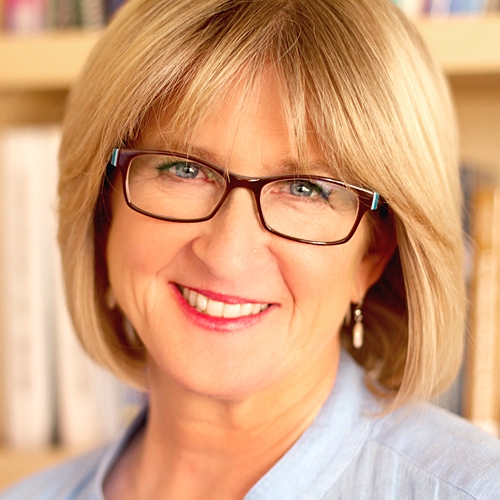
Integrating Normality and Risk in U.S. Maternity Care, Emphasis on “Care”

Christine Morton is a medical sociologist at the California Maternal Quality Care Collaborative (CMQCC) at Stanford University where she conducts research on maternal mortality and morbidity and helps translate the findings into maternal quality toolkits.
As a sociologist, Dr Morton seeks to explore the social meanings of maternal quality among all stakeholders. Her speaking and writing connects her to nursing, obstetric, midwifery, doula, public and social science audiences.
Her book, Birth Ambassadors: Doulas & the Re-emergence of Woman-Supported Childbirth in America, documents the history and experience of the doula role in US maternity care and is on the required reading list for DONA International.
She is a long time Lamaze board member and currently chairs a Lamaze Work Group, which aims to demonstrate the value of childbirth education. She is married to an internet sociologist and they have a son and daughter, ages 22 and 17, who were born safe and healthy thanks to great teamwork.
Maternal mortality and morbidity are rising, the cesarean rate just crept up and infant mortality rates are still too high in the United States. Black women are more likely to experience these outcomes than non-black women. This session will present U.S. trends and outline recent efforts to improve maternal quality of care. The triple aim of healthcare is quality, safety and satisfaction. As maternity leaders work to improve quality and safety, they still need to address the critical dimension of women’s satisfaction with their birth, whether that experience involved a severe complication or not. Standardizing responses in emergent or routine clinical situations is critical but so is the value of individualizing care. This means examining how emotional, experiential and relational aspects of maternity care affect outcomes, both long and short term. In this session, we will address the important, unasked question in maternity care today: What are the costs of not ‘caring’?

View Details / Enroll
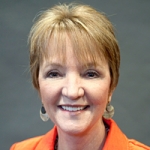
Interdisciplinary Neuroprotective Practice Standards and Perinatal Mental Health in the NICU

Dr. Craig lives in metro Atlanta, GA., is an Associate Professor and the Department Chair of Brenau University’s School of Occupational Therapy program. She has been practicing for 35 years, received her degree in OT at the Medical College of Georgia, her MBA from the University of Alaska-Fairbanks, and her PhD in Infant and Childhood Disorders with emphasis in Mental Health and Developmental Disabilities from Fielding Graduate University. Jenene currently serves as the Director of Education for National Association of Neonatal Therapists (NANT). She is also on the executive committee of the Board of Directors for the National Perinatal Association. In addition to consulting with several local NICUs, Jenene works PRN at a regional Level III NICU. She serves as a national speaker for the care of premature infants and families embattled in the stressful environment of the NICU. Jenene’s personal passion is to support multidisciplinary work in the NICU with a focus on parent-infant outcomes.
Hospitalization of a baby in a Neonatal Intensive Care Unit (NICU) has been described as a traumatic experience for both parents and baby leading to higher rates of postpartum depression and posttraumatic stress disorder in parents and to adverse developmental, cognitive and behavioral outcomes in their infants. The focus of care in the NICU has been broadening and evolving to emphasize the importance of supporting the family-infant relationship, since ultimately, the well-being of the family affects the well-being of the baby. Research documents that NICU parents both desire and benefit from psychosocial support from NICU staff, yet many staff, including neonatologists and neonatal nurses, do not feel they have adequate skills to support these needs. NICU staff need knowledge and tools beyond what typical healthcare education provides. Interdisciplinary recommendations for work toward best practice around psychosocial support of infants/parents and staff are presented.
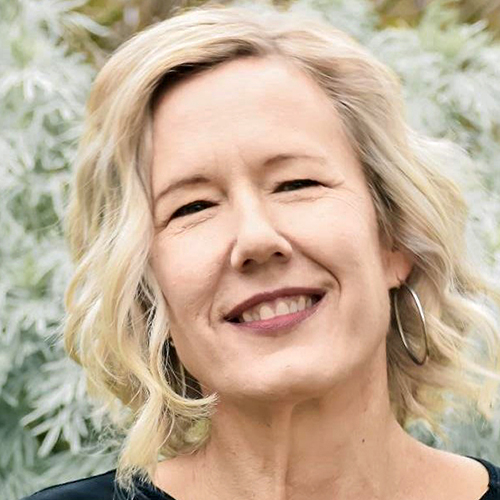

Dr. Gerner has been a Maternity and Pediatric Specialist in private practice for over 17 years with an additional focus on functional infant cranial work. She teaches other professionals to support breastfeeding across the USA and internationally. She is a wife, mother of 3 grown children, and lives in Northern CA with her husband and their 2 rescued dogs.
Topic: Introductions and Establishing the Value of Integration - [View Abstract]
Topic: Nitty Gritty Anatomy: The Cranium, Supporting Structure and the Muscle Layer - [View Abstract]
Topic: Tying It All Together- Consequences of Pathology and Ideal Collaboration - [View Abstract]
Breast is best! We all know that; however, often parent and child struggle so much at the beginning that breastfeeding either isn’t possible or the parent becomes discouraged and gives up. When feeding challenges occur, sometimes the problem is not with the mother’s technique, but rather with the baby himself- barriers within the alignment and tone of his body causing abnormal function and preventing normal breastfeeding. There can also be tethered oral tissues present (tongue or lip ties) causing even more dysfunction. This presentation focuses on: (1) why breastfeeding is best- nutritionally and neurologically; (2) The cause of imbalance- The birth process; (3) the importance of the integrative collaboration of therapists- i.e. the LC, DDS, chiropractor and/or cranial therapist.
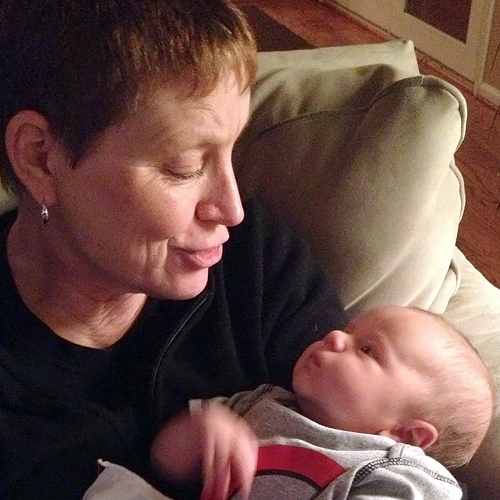
Is Sleep Really A Necessity? Nighttime Parenting With Multiple Infants

Karen Kerkhoff Gromada, MSN, RN, IBCLC, FILCA has been an IBCLC since 1991 and has worked as an IBCLC in both private practice and hospital settings. She also has experience as an adjunct clinical instructor for the University of Cincinnati College of Nursing and as a staff nurse in labor and delivery, childbirth education and postpartum discharge nursing care. Gromada was accredited as a La Leche League (LLL) Leader in 1975 and formed the first LLL group for mothers of multiples after the birth of her twin sons. The experiences of the group’s mothers provided the basis for her book Mothering Multiples: Breastfeeding and Caring for Twins or More. Her numerous articles and chapters about breastfeeding multiples have been published in professional and lay publications. A former International Lactation Consultant Association (ILCA) president (1994-96), she was designated Fellow of the International Lactation Consultant Association (FILCA) in 2008.
Sleep deprivation and disruption of an individual’s circadian patterns in the postnatal period are frequently cited as contributing factors in the development of postpartum depression, anxiety (PPD&A) or postpartum post-traumatic stress symptoms (P-PTSS). These factors are increased for the birthing parent of twins, triplets or more, who is more likely to bring two or more newborns home after experiencing perinatal complications and related interventions, and infants’ preterm birth, low birth weight and other complications, often resulting in neonatal intensive care unit stays. Even for a relatively ideal multiple pregnancy and birth, caring for two or more newborns – each having as many needs as any single-birth newborn – round-the-clock parenting generally leads to profound and often long-term sleep deprivation. When significant sleep deprivation affects a parent’s daytime behavior, all family members are affected. Yet current “safe sleep” recommendations or nighttime strategies promoting better sleep for parents and a single infant, including safer bedsharing techniques, are more difficult logistically to implement. These recommendations and strategies may also be less safe to implement with multiple infants. This session will examine the factors contributing to disruptive sleep for parents of multiples and develop strategies that meet both infants and parents needs for adequate sleep.

It Is My Baby Too: Improving Fathers’ Experiences of Neonatal Care

Prof. (Dr.) Minesh Khashu M.B.B.S, MD, FRCPCH, FRSA, Q Fellow ( Health Foundation & NHS Improvement), Fellow England Centre for Practice Development Consultant Neonatologist, Poole Hospital NHS Foundation Trust & Prof. of Perinatal Health, Bournemouth University. Clinical Director, Maternity & Neonatal Care, Regional Strategic Clinical Network, NHS England, Wessex Dr. Khashu has received national and international recognition for his work especially in Quality Improvement, Necrotizing Enterocolitis and improving fathers experiences of neonatal care. Dr. Khashu is a clinical leader reimagining healthcare with a focus on system wide transformation, continuous Quality Improvement and Patient Centred Care. He has experience of clinical management and leadership at hospital, regional and national level including strategic change, system redesign, large scale quality improvement and development of national guidance and multi stakeholder collaboration. He has developed the DadPad Neonatal, a resource to support dads whose babies have been admitted to neonatal units. This has been very well received by parents, families, healthcare professionals and charities and nominated for multiple national awards. https://thedadpad.co.uk/neonatal/ He has also set up SIGNEC (special interest group for NEC) in the U.K. and developed a website for parents/families and health professiaonals which has been much appreciated. https://signec.org/ He convenes International Conferences on NEC in London regularly.
The presentation will cover current evidence of suboptimal practice in terms of fathers expereinces within maternity and neonatal services, our specific recommendations to improve practice and my development of DadPad Neonatal as a specific resource to improve experiences of fathers.
We have reviewed the literature on engaging fathers in neonatal units, with the aim of making recommendations for improving experience of fathers as well as health outcomes in neonatal practice. Fathers typically describe the opportunity to bond with their babies in glowing terms of gratitude, happiness and love. These experiences are underpinned by hormonal and neurobiological changes. We find that engagement with fathers remains sub-optimal. Fathers, also, are subject to different social expectations from mothers, which shapes how they respond to the situation and how neonatal staff treats them.
We have put forth 3 core principles and 12 practical recommendations for neonatal teams to focus on.

View Details / Enroll


Kathleen Kendall-Tackett, PhD, IBCLC, FAPA, is a health psychologist and International Board Certified Lactation Consultant, and the Owner and Editor-in-Chief of Praeclarus Press, a small press specializing in women's health. Dr. Kendall-Tackett is Editor-in-Chief of two peer-reviewed journals: Clinical Lactation and Psychological Trauma. She is Fellow of the American Psychological Association in Health and Trauma Psychology and Past President of the APA Division of Trauma Psychology. Dr. Kendall-Tackett specializes in women's-health research including breastfeeding, depression, trauma, and health psychology, and has won many awards for her work including the 2017 President’s Award for Outstanding Service to the Field of Trauma Psychology from the American Psychological Association’s Division of Trauma Psychology. Dr. Kendall-Tackett has authored more than 460 articles or chapters and is author or editor of 38 books.
Amy Brown, PhD, Professor, is based in the Department of Public Health, Policy and Social Sciences at Swansea University in the UK. With a background in psychology, she has spent the last thirteen years exploring psychological, cultural and societal influences upon infant feeding decisions in the first year. Her research seeks to understand how we can shift our perception of how babies are fed away from an individual mothering issue to a wider public health problem – with societal level solutions. Dr Brown has published over 60 papers exploring the barriers women face in feeding their baby during the first year. She is a mother to three human children and three book babies: Breastfeeding Uncovered: Who really decides how we feed our babies, Why starting solids matters, and The Positive Breastfeeding Book: Everything you need to feed your baby with confidence. She is a regular blogger, aiming to change the way we think about breastfeeding, mothering and caring for our babies.
Nekisha Killings, MPH, IBCLC, LLLL, is an experienced marketer, writer, equity strategist, and international board certified lactation consultant. After spending years in consumer-packaged goods marketing and community partnership building, followed by a decade of public relations and ghostwriting, she found her life’s work in lactation support and maternal and child health equity through her personal experiences with birth and breastfeeding. Nekisha contributed the chapter on Cultural Humility in the latest Core Curriculum for Interdisciplinary Lactation Care. She acts as equity strategist for lactation-related organizations that seek to better reach underserved communities. Recently, she co-founded Nikki & Nikki: Lactation Career Consultants, an organization dedicated to equipping aspirants of color to sit the IBCLC exam. In addition to being spouse to an active duty United States Air Force member, Nekisha also homeschools three little future world changers and enjoys writing and research on the impact of historical trauma on families’ breastfeeding experiences today.
We don’t often think about “marketing” breastfeeding/chestfeeding and human milk, but when it comes to public health messaging, that’s exactly what we’re doing. Marketing is defined as “the action or business of promoting and selling products or services, including market research and advertising”. Recent public health campaigns have been successful at increasing breastfeeding initiation rates, but the duration of exclusive breastfeeding remains low, certain groups that question the safety of exclusive breastfeeding are gaining traction, and lactation professionals continue to be seen as “pushing breastfeeding” and causing feelings of guilt of shame. Clearly it is time for a change. This panel of experts will look at the reasons why marketing of breastfeeding and human milk is important, the impact of recent marketing campaigns, and what we could be doing better.

View Details / Enroll

View Details / Enroll
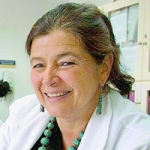
Kangaroo Mother Care Now and Then: 30 Years of KMC Clinical and Research Experience in a Developing Country

Dr Nathalie Charpak is currently the scientific coordinator and an attending paediatrician at the Kangaroo Mother Care program of the San Ignacio University Hospital. In addition, she is a founding member, senior researcher and director of the “Fundacion Canguro” in Bogotá, Colombia since 1994. Dr Charpak received her M.D. from the “Paris Sud” University and her paediatrician diploma from “Rene Descartes” University in Paris, France. She migrated in 1986 to Colombia where she validated her title as Paediatrician and begin in 1989 to work on the evaluation of the Kangaroo Mother Care (KMC) program. She is now a Colombian citizen. With several colleagues she founded in 1994 the “Fundacion Canguro” in Bogotá, an NGO devoted to research, teaching, training and direct medical care related to KMC method for premature infants that besides conducting large clinical trials on KMC has been actively disseminating the method mainly in low and middle income countries in Latin America, South East Asia, India, Africa and Eastern Europe. In 1996 in Trieste Italy she was among the group of international researchers, physicians and nurses who founded the International Kangaroo Network -INK- an international alliance devoted to collaborating, enhancing and disseminating the KMC method. Dr Charpak continues to work as an attending paediatrician in the KMC program and his current research interest is in integrative methods for summarizing and putting into action what is known about KMC in the form of evidence-based clinical practice guidelines. She is also recently involved as coordinator in conducting evaluations of long term (adolescents and young adults) neurodevelopment outcomes in preterm infants exposed or not exposed to KMC during the neonatal period.
The Kangaroo Mother Care (KMC) Method is primarily targeting the preterm and/or LBW infants once they are stabilized and adapted to extra-uterine life. KMC has three mayor components: kangaroo position (KP) or direct skin-to-skin contact between the mother and the baby; the kangaroo nutrition (KN) based on exclusive breastfeeding and the kangaroo discharge policies: early discharge in KP at home or in a KMC ward under strict follow up. KMC is a tool for humanization at all levels of neonatal care. There is sound scientific evidence for the effectiveness and safety of KMC in terms of mortality, early infectious morbidity, development, promotion and maintenance of breastfeeding. Also, there is evidence for the beneficial effects of KMC on establishing healthy bonding between mothers and infants. Many health professionals consider KMC as a means of protecting the immature brain when it is the most fragile and the results of our long term follow up are supporting this hypothesis.

View Details / Enroll



